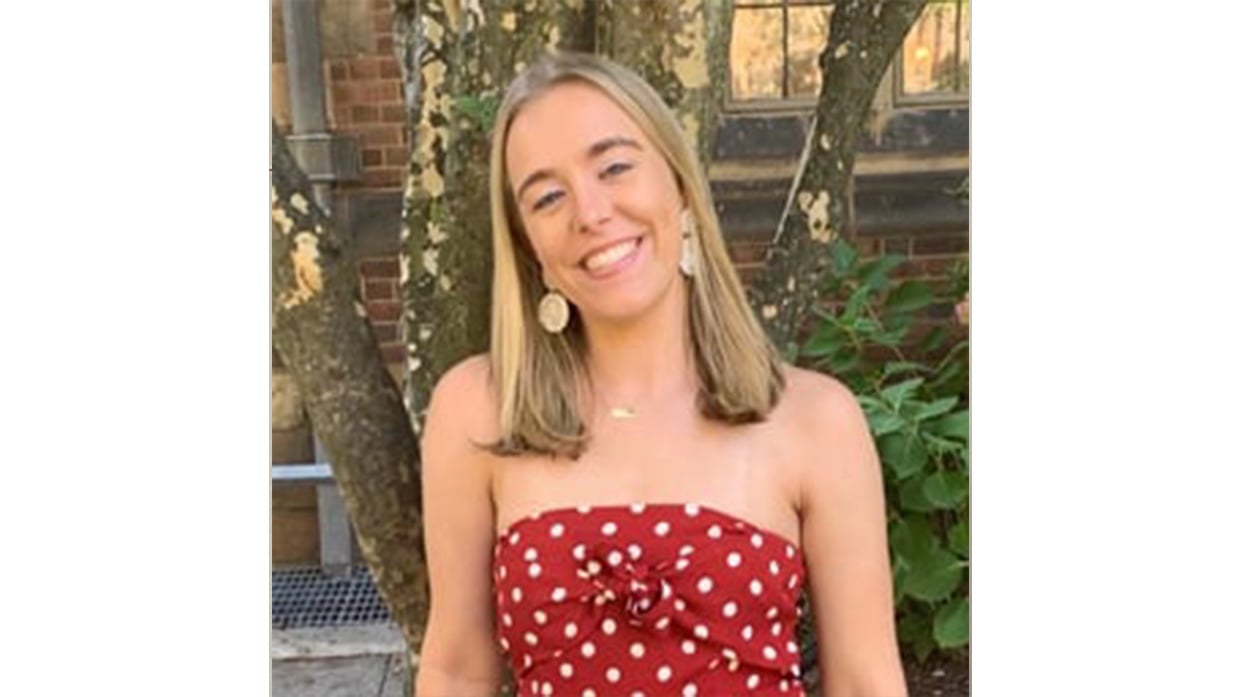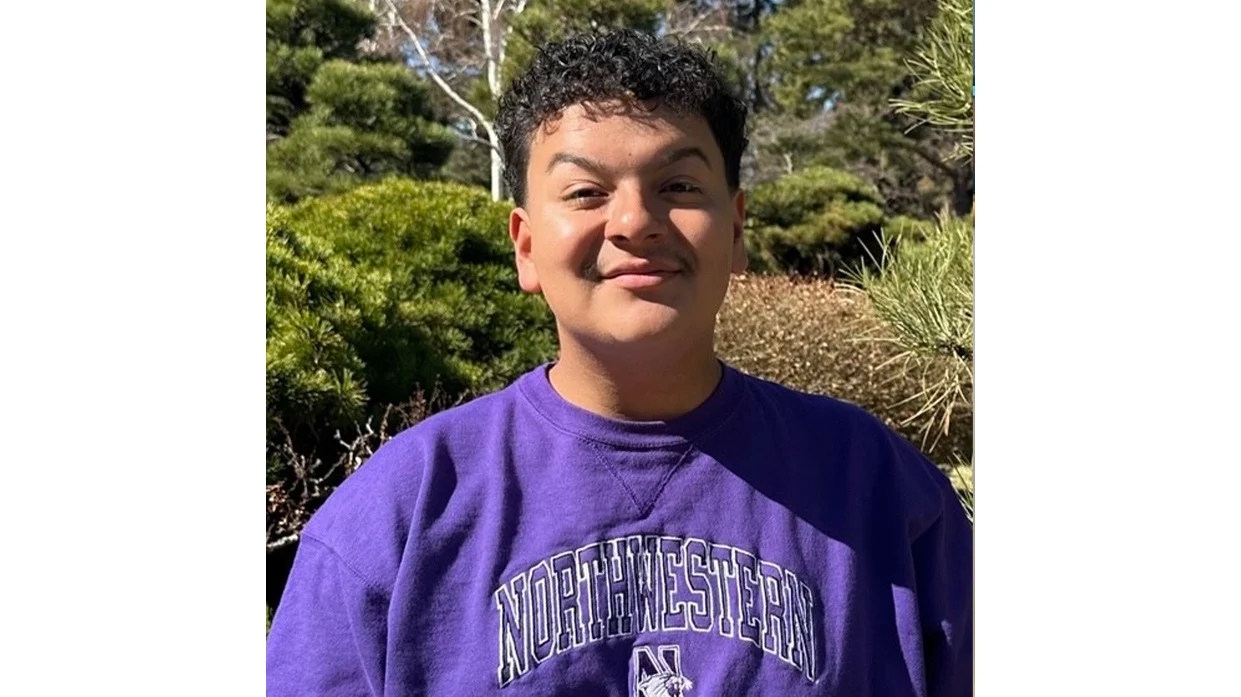Resources / Stories from College
Olivia's Junior Update from Vanderbilt

“Living in another country pushed me outside of my comfort zone and helped me gain confidence. I learned so much by immersing myself in a different culture.”
Spread the Knowledge.
Olivia shares highlights from her junior year at Vanderbilt, and from her semester studying abroad.
How was your junior year at Vanderbilt?
It was transformative! The biggest highlight was studying abroad. Living in another country pushed me outside of my comfort zone and helped me gain confidence. I also traveled to other parts of Europe including Spain and Morocco, which helped me gain a global perspective, especially how people live, learn, and work in different parts of the world. The experience helped me grow personally and academically. I learned so much by immersing myself in a different culture.
Where did you study abroad? And what did you study?
I studied in Florence, Italy through CET Florence, a program I applied to through Vanderbilt's study abroad website. I took five classes: Beginning Italian, Intercultural Communications, International Management, Leadership Development, and Wine Studies. Each class met twice a week, and I had Fridays off. The classes were small, discussion-based, and taught in English by local professors.
What attracted you to Florence?
I wanted a program connected to my major (Human and Organizational Development) but also one that offered cultural exploration and personal growth. My major is broad and interdisciplinary, so I was looking for a study abroad experience that would let me explore those themes through a new cultural lens. Florence offered a perfect mix of academics, food, history, and a slower lifestyle that helped me get outside my usual routine. Unlike some of the other programs I researched, the courses offered in Florence really stood out to me. They matched my personal interests, and the credits could all be transferred to Vanderbilt and counted for my major.
Was it hard to adjust to life in Italy?
The pace in Florence was slower than what I was used to at Vanderbilt or in the U.S. At home, my days often start early and are packed with back-to-back classes, club meetings, study groups, and quick meals on the go. In Florence, I had time to leisurely walk to class, enjoy long meals, and explore the city in between. I also learned that Italians tend to start their day later – my earliest class wasn’t until 10:45 a.m. vs. at Vanderbilt I was attending classes as early as 8:00 a.m. There were earlier classes offered, but my program assigned courses based on availability and didn’t place students in the earlier time slots unless necessary. As for the city itself, most stores and shops in the touristy areas of Florence were open early. However, in less touristy neighborhoods, it’s more common for places to open later in the morning and even close midday for a break.
What were some highlights of your time abroad?
Weekend trips with friends, especially to the Amalfi Coast, Cinque Terre, and Venice, were some of the most thrilling and unforgettable parts of my study abroad experience. We navigated trains, ate incredible food, and explored the different cities in Italy. We experienced everything from art museums and vineyards to everyday grocery shopping in another language. My favorite food moment was eating fresh truffle pasta in a small hill town after a wine tasting in the Chianti region of Italy.

What was most challenging about the experience?
I had to adapt to a new learning environment and a different style of classes, which were more discussion-based and sometimes less structured than those at Vanderbilt. Instead of frequent assignments, some classes focused more on open-ended conversations and experiential learning, like museum visits or city walks.
The pace of the classes was more relaxed than what I was used to back home. While I still cared about doing well, there wasn’t the same pressure to constantly perform or compete academically. I’m used to a fast-paced, high-expectation environment, where pressure and structure help keep me focused. That shift was challenging at first but ultimately helped me concentrate more on learning for the sake of curiosity and cultural growth (instead of grades) because the classes transfer as pass or fail to Vanderbilt.

The most challenging part was finding balance between school, travel, social life, and self-care. This is true at any college, but when you’re studying abroad, there is very little down time because you want to experience everything, whether it’s a weekend trip, a late-night dinner, or a spontaneous outing. With classes, cultural adjustment, and budgeting funds all happening at the same time, I had to learn to slow down and prioritize my routine and rest. At times I missed out on sleep trying to do it all, but eventually I realized I couldn’t keep up that pace. I started adding slower mornings into my routine, saying no when needed, and making time for quiet, like walking through the city or making dinner. Once I did, I felt more present and was able to enjoy the experience more.
How did you manage with the language?
I didn’t know Italian before going, but I took a beginner class (which was required as part of my program) and picked up enough to get by at restaurants, shops, and travel. Most people in Florence speak English, so I never felt too out of place, but it was nice to understand some of the basics.
Did you interact with local students much in this program?
My program was only for study abroad students so my interaction with local students was limited. However, we had local professors, went on site visits to wineries and local businesses, and even learned some cooking techniques from locals. I still feel I experienced Italian culture in a meaningful way, even without regularly interacting with local students.
What did you take-away from your experience in Italy?
Living in Italy taught me to slow down and appreciate small moments. I love how some Italians embrace the little things, like taking time for meals (it is seen as rude if the waiter brings the check over without being asked to), enjoying conversations without rushing, and really living in the moment. There’s a strong focus on quality of life and enjoying everyday experiences, which made me appreciate things I might normally overlook, like a sunset, daily coffee, or walk to the grocery store. One of my favorite memories was sitting on the steps of Piazzale Michelangelo (which has the best view of the city) with friends, eating gelato, and watching the sunset over Florence.

I also made close friends from different colleges across the country that I never would’ve met otherwise, as well as students from Vanderbilt that I didn’t know. Studying abroad helped me build connections and feel more confident trying new things, which I think will make me more engaged both academically and socially back at Vanderbilt.
Did you experience any financial challenges while studying abroad?
Yes, budgeting was tricky between exchange rates, unexpected travel costs, and wanting to eat out for every meal, it was easy to overspend. There were many opportunities to travel outside of Florence on weekends – and these trips cost extra. Transportation, food, and museum tickets add up fast.
What helped me most was tracking my weekly spending and setting a cap for weekend trips. I also took advantage of local markets and cooked with friends to save on meals. Fortunately, Vanderbilt transfers students’ tuition payments to the study abroad program, so the semester abroad costs close to the same as a regular semester.
How would you rate the study abroad program overall? Did you feel supported by the staff? Was it well run?
I’d rate it a 9 out of 10. The staff were super supportive and always available if we needed anything from academic aid to helping me make a doctor’s appointment. While some classes felt more relaxed than I was used to at Vanderbilt, the overall experience was incredibly well-organized and rewarding. I think it helps to go in with an open mind and be ready to adapt to a different pace and style of learning. To make sure your study abroad program is well run, make sure to do research before you go. How to Tell If a College Has a Strong Study Abroad Program can help you figure out where to start.
What advice do you have for other students who may want to study abroad?
Say yes to new experiences. For example, I went paragliding! This was a huge deal for me because I never thought I would do something like this, not because I am afraid of heights, but more because I didn’t think I would ever have the opportunity. That said, don’t be afraid to say no when necessary (you have to study and pass your classes!). Be curious, ask locals for recommendations, journal your adventures, take lots of pictures (so you don’t forget the small moments!), and try to learn the basics of the language. Make sure to pack less than you think and begin saving money as early as possible. Also, refer to Eight Tips for a Great Study Abroad Experience to learn more about how to make the most of your study abroad.

What advice can you give other students to succeed in college as a junior?
Stay organized and start thinking about life after college, whether that’s internships, grad school, or something else. Junior year can feel like a turning point because things start to get real: classes get more focused, internship deadlines come up fast, and there’s more pressure to figure out what’s next. My advice is to check in with yourself often. Make time for self-care, and don’t underestimate the power of networking – it really can open doors when you least expect it.



